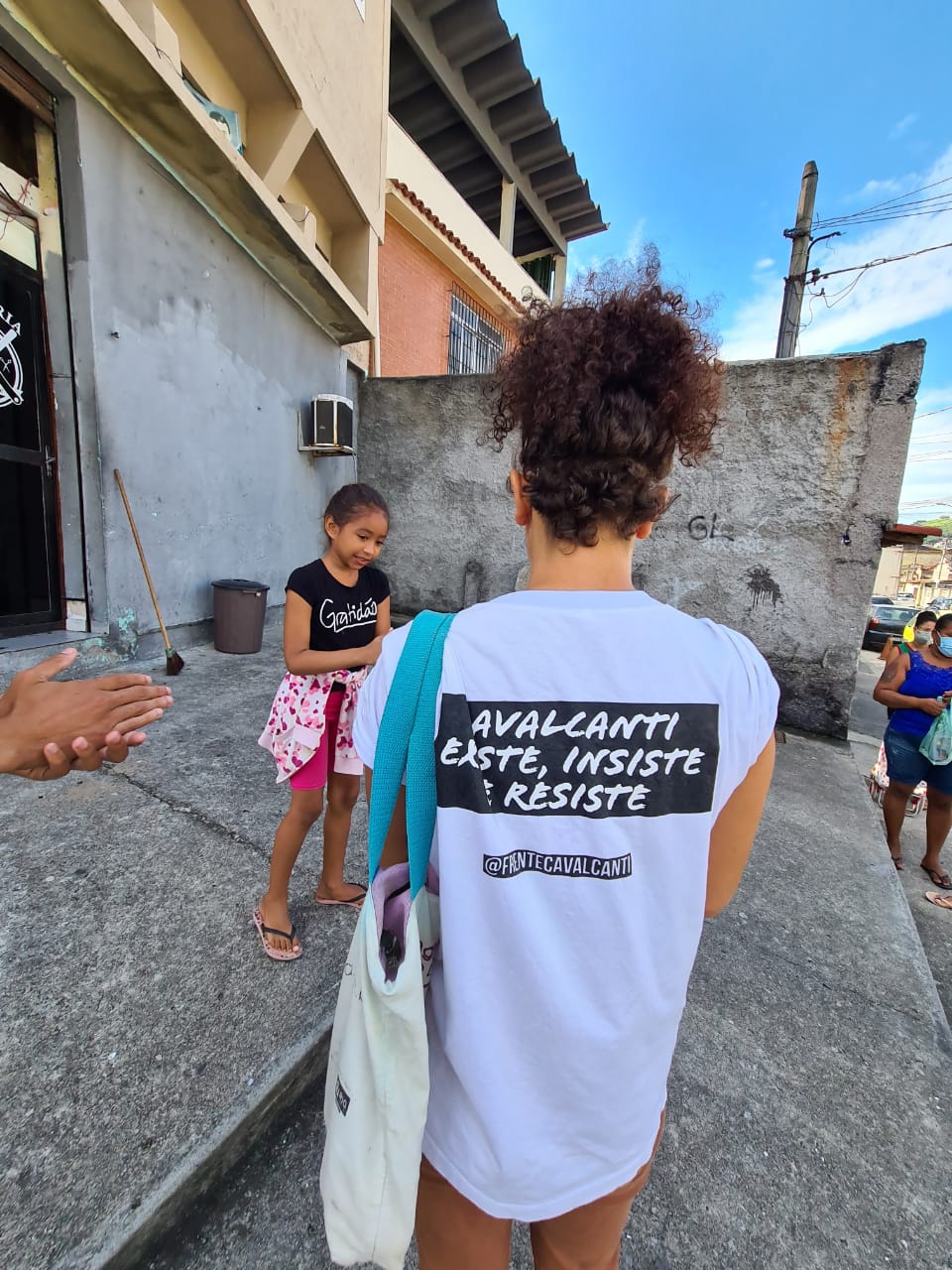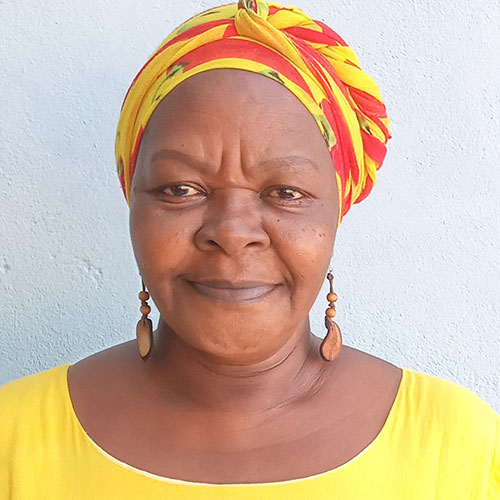Reviving memories and combating hunger: the mission of the Coletivo Frente Cavalcanti
Young people from the Cavalcanti neighborhood, in Rio de Janeiro's North Zone, unite to fight against food insecurity and social exclusion


Founded in 1910, the Rio de Janeiro neighborhood of Cavalcanti is the birthplace of the Grêmio Recreativo Escola de Samba Em Cima da Hora, famous for presenting the samba Os Sertões during the 1976 Carnival.
Considered a predominantly residential neighborhood, Cavalcanti is strongly influenced by the soccer and samba culture characteristic of Rio de Janeiro’s North Zone. The area also hosts various Catholic celebrations, like the week-long Festa do Apóstolo São Pedro.
It is in this peripheral neighborhood that the headquarters of Coletivo Frente Cavalcanti (Frente Cavalcanti Collective, in English) is located – a youth collective founded in June 2020.
Focused on food security, the project was created by Tais Almeida, Milena Ventura and Reinaldo Neves, who later invited Leandro Ferreira, an English teacher, to volunteer as well.
In an interview for Coluna da Neuza, Leandro shared that the collective does not have a fixed coordination or hierarchy among members; whoever is present at the time of need takes responsibility for the task.
When they secure approval for a grant, a coordinator, an educational staff, workshop leaders and other professionals are brought in. But when funding is lacking, everyone works voluntarily.
Collective emerged at the start of the pandemic
The Coletivo Frente Cavalcanti, formed by seven members, began three months after COVID-19 was officially declared a pandemic by the World Health Organization (WHO).
Leandro explains that the volunteers noticed “a large number of young people and adults moving around the neighborhood streets, and we understood this was because residents didn’t have much to do since no one could go to work, and schools were closed”.
The group also noticed an unusual movement pattern among most of the neighborhood’s youth, especially in the afternoon, when this flow increased significantly. In this coming and going, they noticed a lack of self-care and mutual care; it seemed that people just wanted to live their lives, which began to concern them.

The experience that all of the project’s founders already had with social projects and a strong connection to university activism helped a lot. This way, early on in the collective’s journey, they gained support from the neighborhood’s parish, Apóstolo São Pedro. Afterwards, they organized a network that allowed them to get a significant amount of food, hygiene and cleaning supplies to distribute throughout the neighborhood.
From there, with the help of social media, they began to grow. Over time, they gained support from other communities and collectives, such as Fala Akari, Vozes da Comunidade and Macacos Vive.
The group worked for quite some time on food security, collecting and distributing food across various areas in the neighborhood. Cavalcanti is small, but subdivided into smaller territories, including some communities.
But not everything is easy. Despite the continuity and effectiveness of their social work, the project still cannot fully support the entire neighborhood. Although they maintain contact with a good number of residents, their structure is still not enough to meet the demand.
Reviving memories
In addition to its dedication to food security, the collective works to preserve the neighborhood’s memory. Every open space serves as a place to create art, with various murals by renowned graffiti artists spread throughout Cavalcanti.
They also completed a specific project focused on honoring the memory of one of the composers of one of the most important sambas from G.R.E.S. Em Cima da Hora.
Art, literature and gastronomy
The collective’s goal is always to engage, integrate and act with and for the local residents. This includes celebrations such as the Cosme and Damião festival, honoring the resistance and preservation of this culture, as well as Christmas, Easter, and collaborative art and culture projects, like Agosto Delas – Culture and Gastronomy for Women and Unidos do Cavacorpo, a dance project, in addition to educational and recreational activities.
Leandro adds that the space includes a mini-library and that they also collect and distribute food baskets. Whenever possible, they diversify the range of activities offered to the beneficiaries. He also states that the collective is very important to the neighborhood, and the community’s reaction is positive: residents participate, bring their children and interact.
How to support
The Coletivo Frente Cavalcanti needs volunteers, donations of new or used comic books, food during specific times and content promotion. To contribute financially, make a pix transfer to pixfrente@gmail.com.
For more information, contact Leandro at +55 (21) 97599-0485.
Also, follow the Collective on Instagram.





